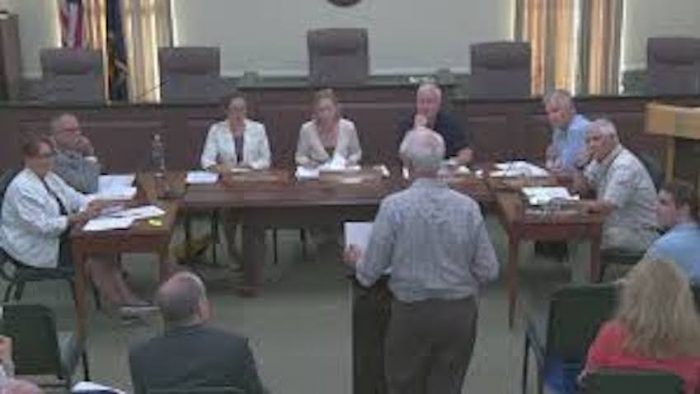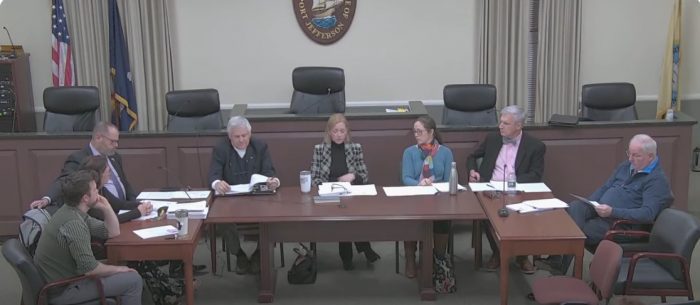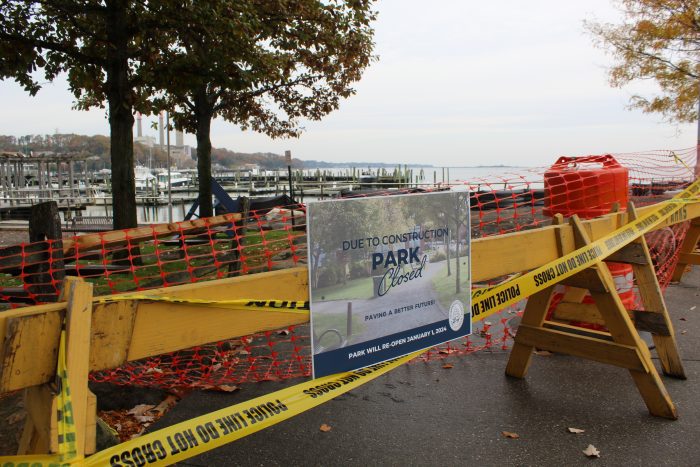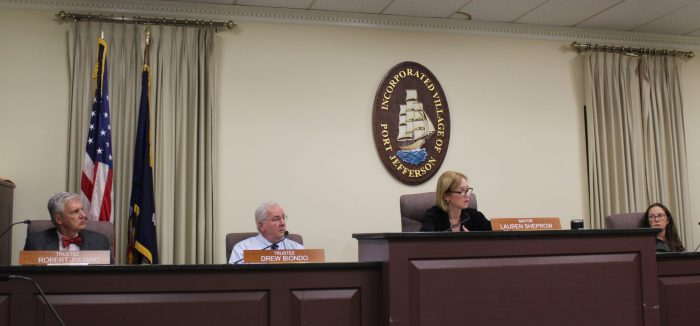By Lynn Hallarman
During the April 10 Village of Port Jefferson Board of Trustees workgroup meeting, Treasurer Stephen Gaffga presented the modified tentative budget for fiscal year 2024-25, highlighting the steps the new administration is taking to stay within the New York State 2% tax cap.
Gaffga divided the presentation into four sections:
• Overview of operational challenges and strategic initiatives
• Breakdown of the village’s funding sources
• Allocation of taxpayer dollars across services and obligations
• Explanation of the impact on resident taxes.
Operational challenges and strategic initiatives
Gaffga provided a detailed breakdown of a $541,000 rise in nondiscretionary spending for fiscal year 2024-25. This increase in spending is mostly due to contractual obligations, including employee health insurance, dental insurance, retirement and workers compensation. Notably, there is a large uptick in municipal insurance costs amounting to $131,000, signifying a 50% increase over the previous year.
Another challenge area is the gradual reduction over time in taxes collected from the Long Island Power Authority under the “glide path” agreement. This year, the village saw a decrease in LIPA’s tax contribution to the property tax base by $135,990. Gaffga noted a roughly $570,000 decline in the assessed valuation of LIPA properties, reflecting their reduced worth. “That decrease has an effect on the tax rate ultimately down the road,” he said.
Gaffga indicated that the village exceeded the state tax cap eight times in the last nine years. However, he asserted that will not be the case this year.
According to him, “spending under our control” — or discretionary spending — will decrease in the 2024-25 budget “by more than $260,000.” This decrease is due mainly to eliminating the managerial parking position and redistributing those duties over several departments.
“This operational change will result in a $190,000 decrease in spending, which will be passed on to the taxpayer,” he said.
Gaffga reported that the “deep dive” into the capital fund audit by specialized CPA firm PKF O’Connor Davies of Hauppauge continues. “They’re getting far along in that process. By the end of the fiscal year, we’ll have some idea of the results of that deep dive,” he said.
The treasurer stressed, “It is important that any changes made to this budget are made by the board and they’re done in full view of the public so that everybody understands that the board controls this budget.”
Funding sources
Property taxes account for 60% of the total revenues collected for the village’s general fund, which supports the operational aspects of the village’s budget. Other significant funding comes from managed parking, tax agreements with utilities and recreation fees.
Expenses
Employee benefits are the most significant expenditure at 23%, or $2.6 million, of the general fund. General governmental support, which includes funding the treasurer’s office, attorney support, the clerk’s office and the justice court, amounts to roughly $2.4 million.
Other village services funded by the general fund include public safety — fire marshals, building inspectors and code enforcement; culture, parks and recreation, including the Village Center programs; transportation, including sidewalk repaving; and home community services such as the building and planning department and street cleaning.
“The large majority of our spending [nondiscretionary] we do not have control over,” Gaffga said. There is a total village spending increase of 5%.
Tax impacts
The general fund appropriations in the modified tentative 2024-25 budget are projected at $11,458,475 ($11,371,826), an increase of 0.76%. In addition, the Port Jefferson Country Club budget is shown at $3,550,000 ($2,904,882), an increase of 22.21% that is paid for by raising dues and fees according to Gaffga.
Total amount of taxes levied by the village for the fiscal year are shown at roughly $6.8 million, about a 2% increase from last year. “New York State establishes the 2% tax cap to ensure local governments don’t grow their tax base beyond what is necessary. The village is coming under what the New York State allows,” Gaffga confirmed.
Residential individual taxpayers could see a tax increase of $1.45 per $100 of assessed valuation.
Residents can view the modified tentative budget on the village website. Public comments are open until 5 p.m. April 20. Comments should be directed to Sylvia Pirillo, the village clerk, at [email protected].
The Board of Trustees will meet again on Wednesday, April 24, at 6 p.m.










